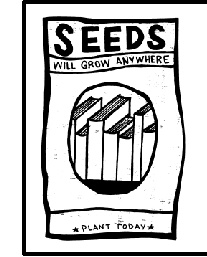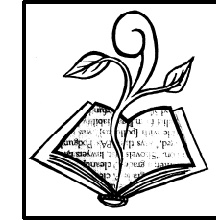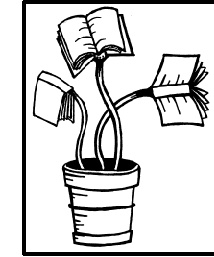
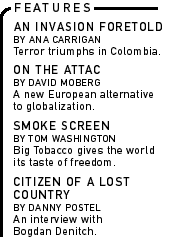
|
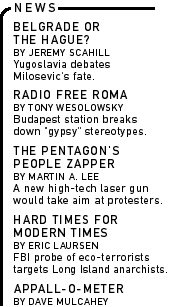
|
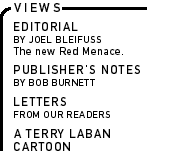
|
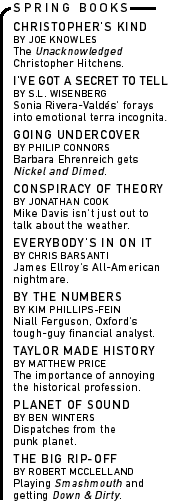
|
| |
|
|||||
|
The Cold Six Thousand John F. Kennedy's long, vague shadow just refuses to recede. Regardless of his actual achievements, his legacy has long ranked up there in the public mind with those of Washington, Lincoln and FDR. Besides coming along at a flashpoint in American history, he was young, attractive and, of course, tragic. The line on JFK's life was a great story, full of idealism and struggle, and the story of his death, packed to the gills with intrigue, ugly characters and a dark axis of hard-edged Cold War fanaticism is an even greater one. Movie studios wish they could dream up something like that. When Hollywood finally did, in Oliver Stone's druggy, labyrinthine opus of the assassination, it helped ensure that the man's legacy would continue to grow by giving even those who never particularly cared about JFK an epic, endlessly involving mystery in which everything is alleged and nothing proven. The assassination becomes a Mšbius strip of detail and accusation that you can follow forever and still end up right back at your starting point, with nothing but the fuzzy idea of a dead president and a general sense of doom. James Ellroy's 1995 novel, American Tabloid, was a typically tangly tale of madmen
In Tabloid, Ellroy was cutting himself loose from the strictures of the crime novel that he had upended and rewired with his L.A. Quartet series. The m.o. was familiar. The Quartet novels had played with history from its first installment, The Black Dahlia, finding room in the dark corners of Los Angeles' gloriously tawdry mid-century history for his brutal stories. Dahlia's follow-up, The Big Nowhere, used the Red Scare as backdrop and prime motivator. In the second half of the Quartet, L.A. Confidential and White Jazz, which together stand as the author's most accomplished work, Ellroy dispensed with better-known history and dug deeper. The occasional real-life character, like gangster Mickey Cohen, graced the books' pages, but for the most part, Ellroy looked beyond the headline-grabbing details. Ellroy's style is based on a lifelong love of detective novels, filtered through a borderline parody of '50s hepcat stylings and cinematic flourish. Roman Polanski and Robert Towne's Chinatown, with its smartly dressed characters, sharp verbal thrust-and-parry and the stolen-water conspiracy, can be seen as a forebear to the Quartet, which as a whole can be read as a counterweight to the onward and upward whitewash that is still often given as the history of America's postwar years. In the Quartet's pages, powerful men planned the future of Los Angeles--the template for modern America--plotting the attempted containment of minority neighborhoods and a carefully monitored drug trade; politicians cut deals with gangsters and cops (crooked by definition) and everybody violently double-crossed each other. By the time of White Jazz, Ellroy's prose, which had always had a staccato rhythm, was heating up and burning off all the fat. In his later fiction, there would be an immense cast of characters culled from every dim hole of the underground; there would be no coincidences, only connections; the strong would win, the good would lose; and just about every crazy rumor you might hear was not only true, but probably only a pale, bland approximation of the whole truth. American Tabloid, a gargantuan story with a finely woven set of thin, sharp storylines, kept the prose impossibly lean even as the plot swelled. Let loose of the physical confines of Los Angeles (with only a couple exceptions, even Ellroy's pre-Quartet books never left the smoggy basin), Tabloid took Ellroy's very particular obsessions--secret deals, power, violence, drugs, gossip, jazz, celebrity, racism--and, for better and for worse, put them on the national stage. Tabloid was something of a letdown; if only because, for the first time, it seemed that
The Cold Six Thousand, Ellroy's follow-up to Tabloid, opens on a flight into Dallas the day of the assassination. Wayne Tedrow Jr. is a Vegas policeman on a semi-secret mission arranged by his juiced-in father, Wayne Sr., a right-wing Mormon bigwig with his fingers in a lot of pies. A black man named Wendell Durfee had knifed a casino dealer; the man lost an eye. A contract is put out on Durfee. Tedrow gets the call: "The Casino Operator's Council flew him. They supplied first-class fare. They tapped their slush fund. They greased him. They fed him six cold. Nobody said it." Just a few pages later, Tedrow is with his Dallas police contact, a drunk by the name of Maynard Moore who just happens to be a good friend of Officer J.D. Tippit, soon to be killed by an on-the-run Lee Harvey Oswald. While Tedrow is no innocent, even the weak conscience that he hangs on to marks him as a moral man in this company. The other two protagonists of The Cold Six Thousand are Ward Littel and Pete Bondurant, both of whom had major roles in American Tabloid. (Bondurant even rated a few mentions in White Jazz.) Littel is an alcoholic ex-FBI agent and former Jesuit seminarian who now cooks the books of several Vegas casinos, does legal work for Howard Hughes and dirty jobs for J. Edgar Hoover. Bondurant is a Class-A brute, an ex-cop, ex-Marine enforcer type for gangsters and various off-the-books government agencies who has an ugly past (he accidentally killed his brother doing a hit for Mickey Cohen, causing his parents to commit suicide after they found out). There's an element of self-parody in these men, as though Ellroy were trying to exhaust the genre with the extremity of his characters. The speed is lightning-quick; there's hardly a paragraph that's more than two sentences long. Every page is packed with information; blink and you've missed about 40 major plot points. There are times when it reads more like a police rap sheet than a novel. Where many historical novelists often fill in the blanks in the factual record with filigree and lengthy conversations, Ellroy tries to pack more facts in; to cover everything possible. The book quickly becomes almost an alternate history of the Vietnam War era, with the usual run-through of civil rights battles and war protests taking a backseat to explications of the country's criminal underbelly. From Dallas, the action moves to Vegas. There, Bondurant is trying to set up a crooked cab company that will use its drivers as spies to blackmail passengers with something to hide, as well as start dealing heroin (which the mob and their casino buddies previously had banned) but in the black neighborhoods only. Littel is working for J. Edgar Hoover on a scheme to undermine both Bobby Kennedy and Martin Luther King. Hoover refers to his two enemies as "The Dark Prince" and "Martin Lucifer King"; his sardonic phone conversations with Littel are among the highlights of the book. Meanwhile, Tedrow is hunting for Durfee, whom he just barely failed to kill in Dallas, and whom he thinks has come back to Vegas looking for trouble. Meanwhile, though JFK is dead, the cause of a liberated Cuba has not been forgotten by exiled extremists. Bondurant helps run their training camps in the Deep South, with the help of local Klan outfits. He is later recruited by a government operative to oversee a heroin smuggling operation out of Laos that flies the drugs to the states (via Nellis Air Force Base in Nevada, where Tedrow's father has connections) and uses the profits to fund the anti-Castro crusade. Along the way, the little conspiracy that killed the president is trying to keep loose ends tied up. Everyone's loyalties are being pulled any number of different ways, and the plot gets twisted up almost too fast. But Ellroy keeps the atmosphere fresh by introducing a number of celebrity walk-ons and cameos--Sonny Liston, Rock Hudson, Sal Mineo, Sam Giancana, Jimmy Hoffa, Sammy Davis Jr.--and always bringing the story back to the country's post-JFK slide into paranoia and protest. When Ellroy lets himself take a breath, he does come out with a nice line or two.
By the time James Earl Ray and Sirhan Sirhan are slotted into the book's infernal machinations, and Ellroy's history of America has advanced another five years toward the present, you need a shower. The relentless drumbeat of deals, backroom torture, gunshots and racist invective has begun to feel like overkill. You can make the argument that the times demand this kind of story: an extreme novel for an extreme history. But the characters have so many of the same obsessions and desires that they begin to blur together, especially the women, who are mostly the same type of one-dimensional tough-talking femme fatales that Ellroy always employs. Was this our history? Did the onrush of escalating crisis from
1960 to 1968 unfold in this manner, planned by ugly Americans with
sordid minds and fat bankrolls? Or is that just the way we wish
it had happened? There does seem to be a powerful human trait that
forces one to look for reasons for inexplicably horrible events.
Is it more comforting somehow to think that a powerful nexus of
government agents and mafioso permanently altered the face of our
nation? Patterns and reasons, no matter how disturbing, are generally
preferable to sheer randomness. Call it negative wish fulfillment.
Chris Barsanti is a freelance writer living in Chicago. His e-mail address is cbarsanti@citysearch.com.
|


